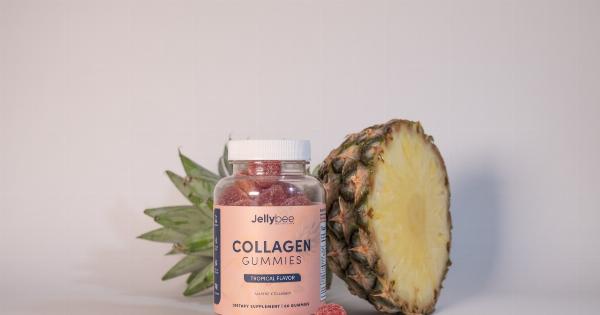Aging is inevitable, but there are ways to slow down the process and maintain a youthful appearance and energy levels. One of the simplest and most effective ways to do so is by taking vitamin supplements.
Vitamins are essential for the body to function properly and can help prevent age-related diseases and keep the body healthy and strong.
Vitamin D
Vitamin D plays an essential role in overall health, as it helps the body absorb calcium and supports bone health. As people age, the risk of bone fractures and osteoporosis increases due to decreased bone density.
Supplementing with vitamin D can help prevent bone loss and reduce the risk of fractures. Vitamin D has also been shown to boost the immune system, prevent chronic diseases, and reduce the risk of depression.
Vitamin E
Vitamin E is a powerful antioxidant that helps protect cells from damage caused by free radicals. Free radicals can contribute to various chronic diseases, including cancer, heart disease, and Alzheimer’s disease.
Vitamin E has been shown to have anti-aging properties due to its ability to protect the skin from harmful UV rays and prevent wrinkles and age spots. It is also beneficial for the cardiovascular system, as it can help lower cholesterol levels and reduce the risk of heart disease.
Vitamin C
Vitamin C is perhaps the most well-known antioxidant and is crucial for maintaining a healthy immune system. As people age, the immune system becomes weaker and less effective, making them more susceptible to infections and illnesses.
Supplementing with vitamin C can help boost the immune system, prevent chronic diseases, and promote healthy aging. Vitamin C has also been shown to have anti-inflammatory properties, which can help reduce the risk of arthritis and other age-related conditions.
CoQ10
Coenzyme Q10, or CoQ10, is a powerful antioxidant that is naturally produced by the body. However, as people age, the body’s ability to produce CoQ10 decreases, which can lead to a variety of health problems.
Supplementing with CoQ10 can help boost energy levels, improve cardiovascular health, and reduce the risk of chronic diseases. It has also been shown to have anti-aging properties due to its ability to protect cells from damage and promote healthy skin.
B Vitamins
B vitamins are crucial for overall health, as they help the body convert food into energy and support brain function. As people age, the risk of cognitive decline and dementia increases, making it important to maintain adequate levels of B vitamins.
Supplementing with B vitamins can help reduce the risk of age-related cognitive decline and promote healthy aging. B vitamins have also been shown to have anti-inflammatory properties, which can help reduce the risk of chronic diseases.
Omega-3 Fatty Acids
Omega-3 fatty acids are essential for maintaining brain health, reducing inflammation, and promoting healthy aging.
As people age, the risk of cognitive decline and dementia increases, making it important to maintain adequate levels of omega-3 fatty acids. Supplementing with omega-3 fatty acids can help reduce the risk of cognitive decline and promote healthy aging. Omega-3 fatty acids have also been shown to have anti-inflammatory properties, which can help reduce the risk of chronic diseases.
Probiotics
Probiotics are live bacteria and yeasts that are beneficial for digestive and overall health. As people age, the gut microbiome can become imbalanced, leading to a variety of health problems.
Supplementing with probiotics can help restore the balance of bacteria in the gut, improve digestion, and promote overall health. Probiotics have also been shown to have anti-inflammatory properties, which can help reduce the risk of chronic diseases.
Iron
Iron is an essential mineral that is crucial for maintaining healthy red blood cells. As people age, the risk of anemia increases due to decreased absorption and increased blood loss.
Supplementing with iron can help prevent anemia, boost energy levels, and promote healthy aging. However, it is important to consult a doctor before taking iron supplements, as too much iron can be harmful.
Calcium
Calcium is essential for maintaining strong bones and teeth. As people age, the risk of osteoporosis and bone fractures increases due to decreased bone density. Supplementing with calcium can help prevent bone loss and reduce the risk of fractures.
However, it is important to consult a doctor before taking calcium supplements, as too much calcium can be harmful.
Vitamin Supplements for a Youthful Appearance and Energy
Taking vitamin supplements can help slow down the aging process and maintain a youthful appearance and energy levels.
Vitamins such as vitamin D, vitamin E, vitamin C, CoQ10, B vitamins, omega-3 fatty acids, and probiotics have anti-aging properties due to their ability to promote healthy skin, protect cells from damage, and reduce inflammation. Iron and calcium are also essential for maintaining overall health and preventing age-related conditions.































